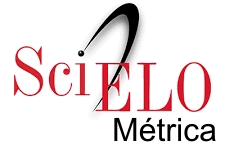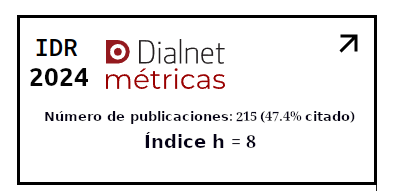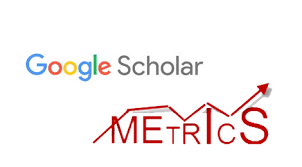El aprendizaje de las Ciencias Sociales desde una perspectiva didáctica contextual
Palabras clave:
Modelo de aprendizaje, didáctica, contextual, competencias, ciencias sociales.Resumen
Los informes de las evaluaciones censales en el Perú, informes de progreso anual, fichas de observación de las prácticas docentes; demuestran los bajos niveles de desempeño en la consecución de resultados en las competencias del campo de las ciencias sociales en secundaria. Los antecedentes y la teoría consultada brindan perspectivas teóricas subjetivas para lograr aprendizajes; percibiéndose la antinomia entre la práctica y la teoría docente en aula. Surgiendo la necesidad de configurar una propuestas innovadora y actualizada, el objetivo principal de la presente investigación es diseñar y aplicar un modelo de aprendizaje con perspectiva didáctica contextual. Responde a un enfoque de análisis cuantitativo, investigación experimental aplicada a una muestra de 40 escolares del segundo año de educación secundaria, evaluados mediante un cuestionario con perspectivas didácticas contextualizadas. La significatividad de los resultados permite concluir que aplicando el modelo es posible avanzar en los niveles de desempeño para el desarrollo de las competencias en las ciencias sociales como área académica del nivel secundario. Asimismo, se evidenció que contribuye de manera concreta en el desarrollo de las capacidades académicas y didácticas de los maestros, fortifica la enseñanza, motiva y posibilita el proceso de aprendizaje y el desarrollo de las habilidades fundamentales del aprendiz.
Referencias
Arenas, A., Bruno, C., Figueroa, R., y Pallacán, C. (2012). El territorio local como recurso para el aprendizaje de las ciencias: una propuesta didáctica desde la educación para el desarrollo sustentable: Resultados preliminares de una investigación universidad-escuela. Revista Anekumene (3). Recuperado de https://revistas.pedagogica.edu.co/index.php/anekumene/article/view/7524
Ausubel, D. (1976). Psicología educativa. México: Trillas.
Bernal, C. (2010). Metodología de la investigación (3 ed.). Colombia: Pearson Educación.
Bernaza, G., Douglas, C., y Valle, M. (2000). Orientar para el aprendizaje significativo. Revista Avanzada, 8, 99-121.
Baker, E., Hope, L., y Karandjeff, K. (2009). Contextualized teaching & learning: A promising approach for basic skills instruction. Recuperado de http://www.rpgroup.org/content/ctl-written-resources
Bulte, A. M. W., Westbroek, H. B., de Jong, O., y Pilot, A. (2006). A research approach to designing chemistry education using authentic practices as contexts. International Journal of Science Education, 28(9), 1063-1086. doi: 10.1080/09500690600702520
Bracho, J. (2016). Lo que preocupa (u ocupa) al profesor de historia en Venezuela. Voces y Silencios, 7(1), 194-215. doi: http://dx.doi.org/10.18175/VyS7.1.2016.10
Caamaño, A. (2011). Enseñar química mediante la contextualización, la indagación y la modelización. Alambique: Didáctica de las Ciencias Experimentales, 69, 21-34.
Chamizo, J. (2013). A new definition of models and modeling in chemistry’s teaching. Science and education, 22(7), 1613-1632. doi: 10.1007/s11191-011-9407-7
Chavarría, J. (2006). Teorías de las situaciones didácticas. Cuadernos de Investigación y Formación en Educación Matemática, 1(2). Recuperado de https://revistas.ucr.ac.cr/index.php/cifem/article/view/6885
Díaz-Bravo, L., y Torruco-García, U., y Martínez-Hernández, M., y Varela-Ruiz, M. (2013). La entrevista, recurso flexible y dinámico. Investigación en Educación Médica, 2(7),162-167. Recuperado de https://www.redalyc.org/articulo.oa?id=3497/349733228009
Díaz Barriga, F. (2003). Cognición situada y estrategias para el aprendizaje significativo. Investigación Educativa, 5 (2). Recuperado de http://redie.ens.uabc.mx/vol5no2/contenido-arceo.html
Díaz Barriga, F., y Hernández, G. (2002). Estrategias docentes para un aprendizaje significativo: Una interpretación constructivista (2 ed.). México: McGraw Hill.
Dörnyei, Z. (2008). Motivational strategies in the language classroom. Cambridge: Cambridge University Press.
Giroux, S., y Ginette, T. (2004). Metodología de las ciencias humanas. México: Fondo de Cultura Económica.
Graus, M., y Pérez, J. (2018). Las unidades didácticas contextualizadas como alternativa para el proceso de enseñanza-aprendizaje de la matemática. Revista Órbita Pedagógica, 1 (3), 1-28. Recuperado de http://revista.isced-hbo.ed.ao/rop/index.php/ROP/article/view/18
Harvey, D. W. (1990). Between space and time: Reflections on the geographical imagination. Annals of the AGG, 80 (3), 418 – 434.
Hendricks, Ch. (2001). Teaching causal reasoning through cognitive apprenticeship: What are results from situated learning? The Journal of Educational Research, 94 (5), 302-311.
Hernández, R., Fernández, C., y Baptista, P. (2010). Metodología de la investigación (5 ed.). México: Mc Graw–Hill.
Hernández, R., Fernández, C., Baptista, P. (2014). Metodología de la investigación (6 ed.). México: Mc Graw Hill.
Hodson, D. (1996). Practical work and school science: exploring some directions for change. International Journal of Science Education, 18(7), 755-760.
Informe ECE. (2018). ¿Qué logran nuestros estudiantes en Ciencias Sociales? Recuperado de http://umc.minedu.gob.pe/wp-content/uploads/2019/05/PptReg_ECE2018_1400_Lambayeque.pdf
King, D. (2012). New perspectives on context-based chemistry education: Using a dialectical sociocultural approach to view teaching and learning. Studies in Science Education, 48(1), 51-87.
Levstik, L. S., y Barton, K. C. (2015). Doing history: Investigating with children in elementary and middle schools (5 ed). Mahwah, New Jersey: Lawrence Erlbaum Associates (LEA).
López, F. (2007). Metodologías participativas en la enseñanza universitaria (2 ed). Madrid: Narcea.
Marchan Carbajal, I., y Sanmartí, N. (2015). Criterios para el diseño de las unidades didácticas contextualizadas: Aplicación al aprendizaje de un modelo teórico para la estructura atómica. Revista Educación Química, 26 (1), 267-274.
Ministerio de Educación. (2019). Currículo nacional de educación básica. Recuperado de http://www.minedu.gob.pe/curriculo/
MINEDU. (2019). Calificación de competencias en secundaria. Lima, Perú. Recuperado de www.minedu.gob.pe
Monroy Hernández, C. (2013). La historia local como estrategia pedagógica para la enseñanza de las ciencias sociales. (Tesis de especialización). Universidad Nacional Abierta y a Distancia – UNAD.
Morillo, I. (2008) Una nueva forma de enseñar las ciencias en el contexto social. Revista Laurus, 14 (26), 307-318. Recuperado de https://www.redalyc.org/articulo.oa?id=76111491015
Neve, M. G. (2003). La cognición situada y la enseñanza tradicional: Algunas características y diferencias. Manuscrito no publicado, Universidad Iberoamericana, Puebla.
UMC. (2018). Resultados de la evaluación censal de estudiantes. Recuperado de http://umc.minedu.gob.pe/evaluaciones-censales/
Ocampo, L. (2008): Paulo Freire y la pedagogía del oprimido. Revista Historia de la Educación Latinoamericana, 10 (1) 57-72.
Perkins, D. (1997). La escuela inteligente del adiestramiento de la memoria a la educación de la memoria: España: Gedisa.
Pérez, G. (2004). Investigación cualitativa: Retos e interrogantes I, Métodos. Madrid, España: La Muralla.
Robinson, K. (2011). Changing education paradigms: Videoconferencia en Ken Robinson.com. Recuperado de https://www.ted.com/talks/sir_ken_robinson_changing_education_paradigms
Sepúlveda, N., y Cornejo, A. (2013). Teoría contextual de Vygotsky (blog). Recuperado de https://es.slideshare.net/VictoorII/teora-contextual-de-vygotsky
Vygotsky, L. S. (1981). Pensamiento y lenguaje. Buenos Aires, Argentina: La Pléyade.
Publicado
Número
Sección
Licencia
Derechos de autor 2021 ACADEMO Revista de Investigación en Ciencias Sociales y Humanidades

Esta obra está bajo una licencia internacional Creative Commons Atribución 4.0.










